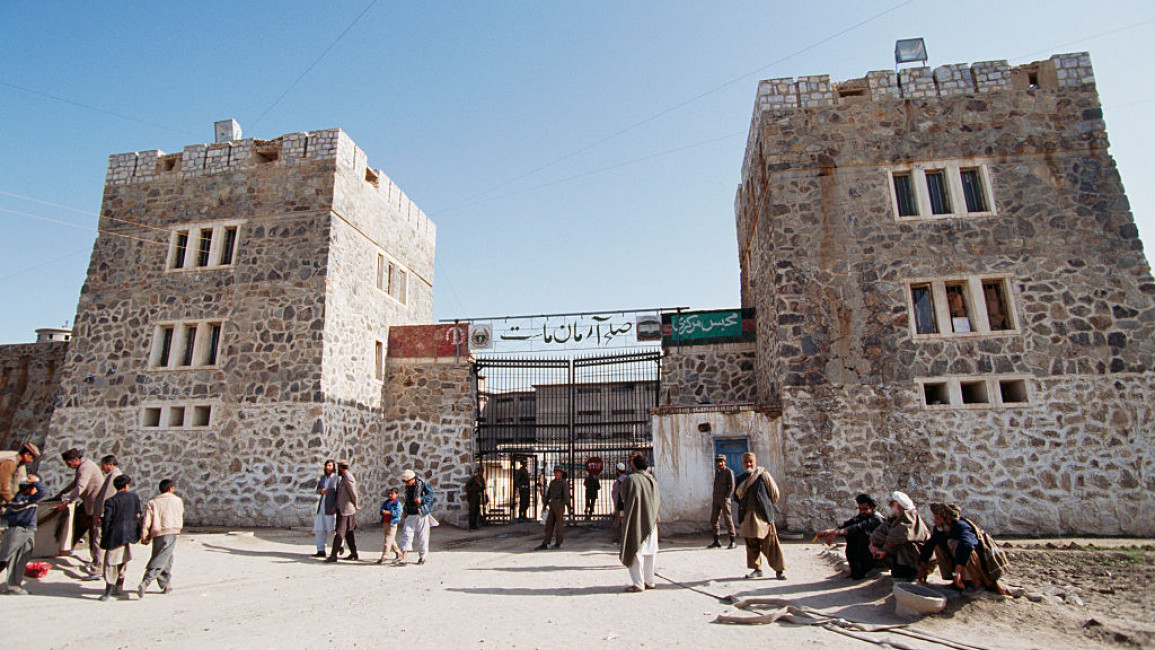Dutch try Afghan 'prison chief' for war crimes
An elderly Afghan man went on trial in a Dutch court on Wednesday for alleged war crimes while in charge of a notorious jail for the communist regime in the 1980s.
The 76-year-old identified as Abdul R. came to the Netherlands in 2001, later acquiring Dutch nationality, and was arrested in 2019.
Prosecutors say that from 1983 to 1990 he was the chief of Pul-e-Charkhi prison east of Kabul, where regime opponents were held without fair trial in "appalling conditions."
The trial in The Hague is the latest in a series of efforts in European countries to bring people to account for crimes in conflict-torn countries, including Syria and Afghanistan.
"This trial is about a man, whom we believe committed a number of war crimes in Kabul," prosecutor Mirjam Blom told AFP.
"We suspect that he, as commander and chief of political affairs, was working in the prison where inmates were arbitrarily robbed of their personal freedom and treated them inhumanely."
Appearing in court in a wheelchair, father-of-four Abdul R. said he was the victim of a case of mistaken identity.
"I am not the person you are looking for," he told the court, before refusing to answer questions, saying that he felt unwell and wanted to return to prison.
"I don't remember anything, not even my own name."
Prosecutors said police started investigating in 2012 after blogs said that the former commander of Pul-e-Charkhi under Afghanistan's Soviet-backed regime was possibly living in the Netherlands.
"Finally we picked up his trail. The public prosecution service has the point of view that he is here (in the Netherlands) under a false name," said Blom.
Dutch authorities spoke to 25 witnesses in various countries and used "countless" open-source materials.
"We are convinced that we have the right person," Blom said.
Notorious for its grim conditions, Pul-e-Charkhi has remained in use under various regimes until the Taliban freed prisoners from it last August.
The Dutch proceedings are made possible by the legal principle of "universal jurisdiction" -- which allows countries to try people for crimes of exceptional gravity, including war crimes, even if they were committed in a different country.
It has so far mainly been used for cases involving the Syrian conflict, including the recent trial in Germany of a Syrian refugee doctor accused of torturing detainees in his homeland.

![Trump's warm greeting to Netanyahu contrasted with Kamala Harris's critical reception [Getty]](/sites/default/files/styles/image_212x120/public/2024-07/GettyImages-2162908988.jpg?h=69f2b9d0&itok=uRh_9WXh)
![The brutal assault on Khan Younis has killed dozens and displaced thousands more [Getty]](/sites/default/files/styles/image_330x185/public/2024-07/GettyImages-2162526709.jpg?h=d3eda8cf&itok=n5N-o8p5)
![Members of the Algerian delegation threw roses into the Seine [Getty]](/sites/default/files/styles/image_330x185/public/2024-07/GettyImages-2162980872.jpg?h=199d8c1f&itok=h_3o_TOL)